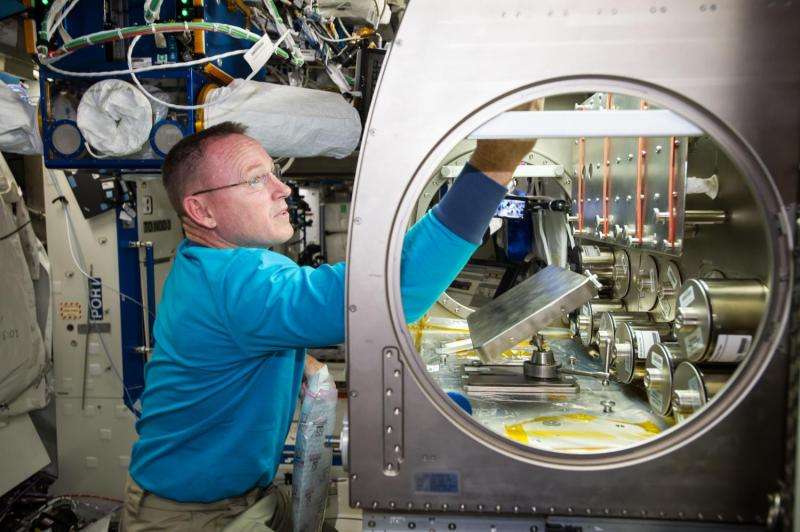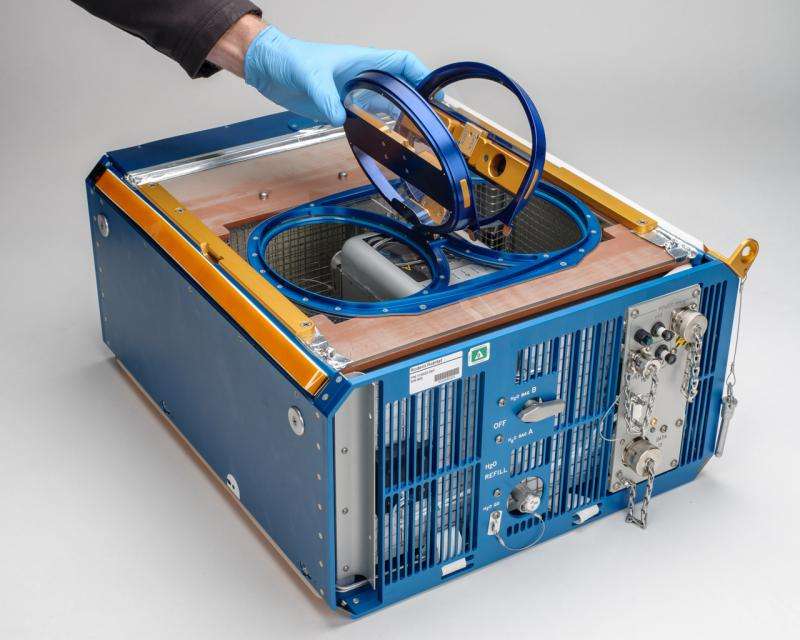'Space-age' research looks to provide new human health insights

Imagine if all of your physiological changes were hyper accelerated so that you passed through life cycles in weeks as opposed to decades. You'd be able to grow a beard overnight or your hair might begin graying in a matter of days or maybe menopause would come knocking by next weekend. This may seem like a far stretch from reality, but spaceflight causes significant physiological changes including an accelerated loss of muscle and bone density, and immune system dysfunction that parallel the effects of natural aging here on Earth. This makes the International Space Station (ISS) is an ideal place for scientists to conduct research on aging at a "space-aged" pace.
One of the several investigations that are part of the second rodent research mission, Rodent Research-2 will focus on the age-old phenomenon of aging. This research, sponsored by Novartis Biomedical Research Institute, the U.S. Department of Defense and the Center for the Advancement of Science in Space (CASIS) is slated to launch to the space station via SpaceX-6. Researchers will use the study to analyze how spaceflight and exposure to the microgravity environment impacts a model organism's musculoskeletal system.
Studying the disease mechanisms of muscle wasting and bone loss, which are associated with both spaceflight and aging, can provide greater insight into these processes and help to identify potential new drug targets and develop new therapeutics for other conditions as well. Advanced treatments for diseases like osteoporosis, muscular dystrophy, cancer, spinal cord injury, and kidney failure could all be developed through valuable data gained through this investigation and subsequent studies.

The musculoskeletal system is made up of bones, muscles, ligaments, tendons, cartilage and joints. This biological system is greatly affected by the aging process and certain diseases, as well as spaceflight. Researchers anticipate that the science conducted on the space station will provide insight into molecular variations induced by spaceflight, and can applied to our knowledge of similar changes on Earth.
The ISS National Lab is now equipped with specialized hardware, like the Bone Densitometer Locker. This facility, which launched with the previous rodent research mission, allows scientists to gather data in real time. Researchers will track numerous data points from the mice test subjects, including gene expression, various biomarkers from several biological systems, and molecular changes within musculoskeletal tissues.
A second part of the Rodent Research-2 study is scheduled to launch aboard SpaceX-7 and will include three separate investigations sponsored by NASA. Michael Pecaut, Ph.D., of Loma Linda University is the principal investigator for a study of the effects of spaceflight on immune system function. Michael Delp, Ph.D., of Florida State University, is the principal investigator for a study of spaceflight-induced changes in the structure of the blood-brain barrier. Data from a third study of the effect of spaceflight on liver metabolism and gene expression will be shared with the scientific community via GeneLab, NASA's new open access system for sharing of genomics data gained from research in space. NASA's Ames Research Center is responsible for carrying out all of the CASIS and NASA-funded science on this mission.
Collaboration between other government agencies and commercial entities, facilitated by CASIS and NASA, are helping to maximize the research capabilities of the ISS National Lab for the benefit of Earth.
We may still have to wait years to experience our own aging—which is likely a good thing—but thanks to space station research we may have help for treating those age-related challenges through the accelerated knowledge gained through studies like Rodent Research-2.
Provided by NASA




















